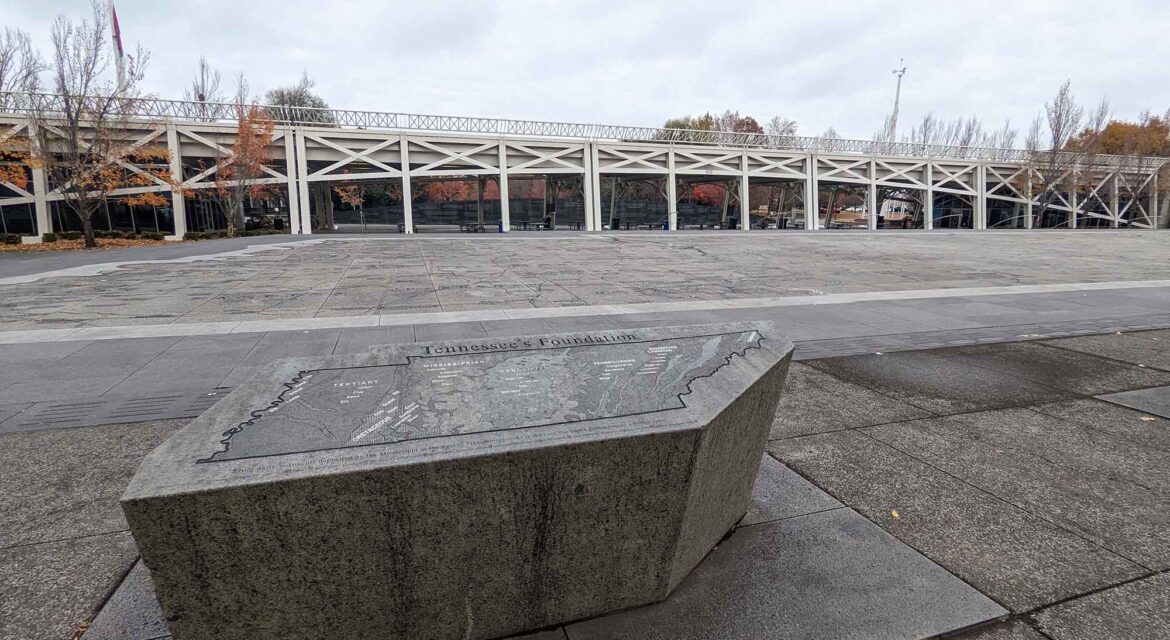 Providing visitors with a sense of the history and natural settings that have defined the state, Bicentennial Capitol Mall has become an essential attraction for Nashville, Tennessee. Created as a lasting monument to Tennessee’s Bicentennial Celebration, a vision to enable connection with the different regions and eras that define the entire state has been fulfilled in a way that resonates with residents and visitors, becoming an essential hub of activity for the city and region.
Providing visitors with a sense of the history and natural settings that have defined the state, Bicentennial Capitol Mall has become an essential attraction for Nashville, Tennessee. Created as a lasting monument to Tennessee’s Bicentennial Celebration, a vision to enable connection with the different regions and eras that define the entire state has been fulfilled in a way that resonates with residents and visitors, becoming an essential hub of activity for the city and region.

Connecting the Past to the Present
 Downtown Nashville was built up over the course of the 20th century, but the north area between the Capitol and the Cumberland River couldn’t support new skyscrapers, making it an ideal spot for a landmark that would connect the past to the present of the city and state. The concept for a park situated north of the Capitol first originated in 1985 while Bicentennial Capitol Mall State Park debuted in 1996 as part of Tennessee’s Bicentennial Celebration.
Downtown Nashville was built up over the course of the 20th century, but the north area between the Capitol and the Cumberland River couldn’t support new skyscrapers, making it an ideal spot for a landmark that would connect the past to the present of the city and state. The concept for a park situated north of the Capitol first originated in 1985 while Bicentennial Capitol Mall State Park debuted in 1996 as part of Tennessee’s Bicentennial Celebration.
Visitors can experience many elements of Tennessee’s history thanks to a variety of individual landmarks, ranging from a 200-foot granite map of the state, to a World War II Memorial, to a 95-Bell Carillon that symbolizes Tennessee’s musical heritage and 95 counties. The Pathway of History and the Rivers of Tennessee Fountains all celebrate the history and legacy of the region while the Court of Three Stars represents the food, music, cultural and geographical differences of the Volunteer State.
The 11-acre park that was modeled after the National Mall in Washington, D.C. also contains a variety of open green space, enabling audiences to connect with the natural wonders of the region. These interactions have opened up significant opportunities that have define the culture and economy of the modern community.

Engaging the Community
 Bicentennial Capitol Mall features a 2,000-seat amphitheater that provides incredible views of the Nashville skyline. This space can be rented for a fee and is the setting for outdoor concerts and other theatrical productions.
Bicentennial Capitol Mall features a 2,000-seat amphitheater that provides incredible views of the Nashville skyline. This space can be rented for a fee and is the setting for outdoor concerts and other theatrical productions.
Costing nearly $30 million in federal and state matching funds, many individual donors also made financial contributions to enable the creation of Bicentennial Capitol Mall. Their names are engraved in the 17,000 decorative pavers that comprise the Path of Volunteers. A gift shop is located in the visitor center which features a variety of clothes, mugs, water bottles, and other products represents another important source of revenue.
A variety of events take place in the space throughout the year, as icentennial Capitol Mall routinely hosts festivals, concerts, and community gatherings of all types. Tours and interpretive events are also regularly scheduled throughout the year. Since 2004, the mall has hosted the Tennessee History Festival as well as a New Year’s Eve celebration.
A main feature in maps and guides to the city, Bicentennial Capitol Mall has enabled connection across the city and region in a way that connects audiences across the eras.

Millions of Visitors Every Year
 Receiving more than 2.5 million visitors annually, Bicentennial Capitol Mall has been ranked as the number one tourist attraction in Nashville. The vision to connect audiences with the legacy of the state and natural wonders of the region have enabled the creation of a landmark where there is always something to see, do, or learn about.
Receiving more than 2.5 million visitors annually, Bicentennial Capitol Mall has been ranked as the number one tourist attraction in Nashville. The vision to connect audiences with the legacy of the state and natural wonders of the region have enabled the creation of a landmark where there is always something to see, do, or learn about.

